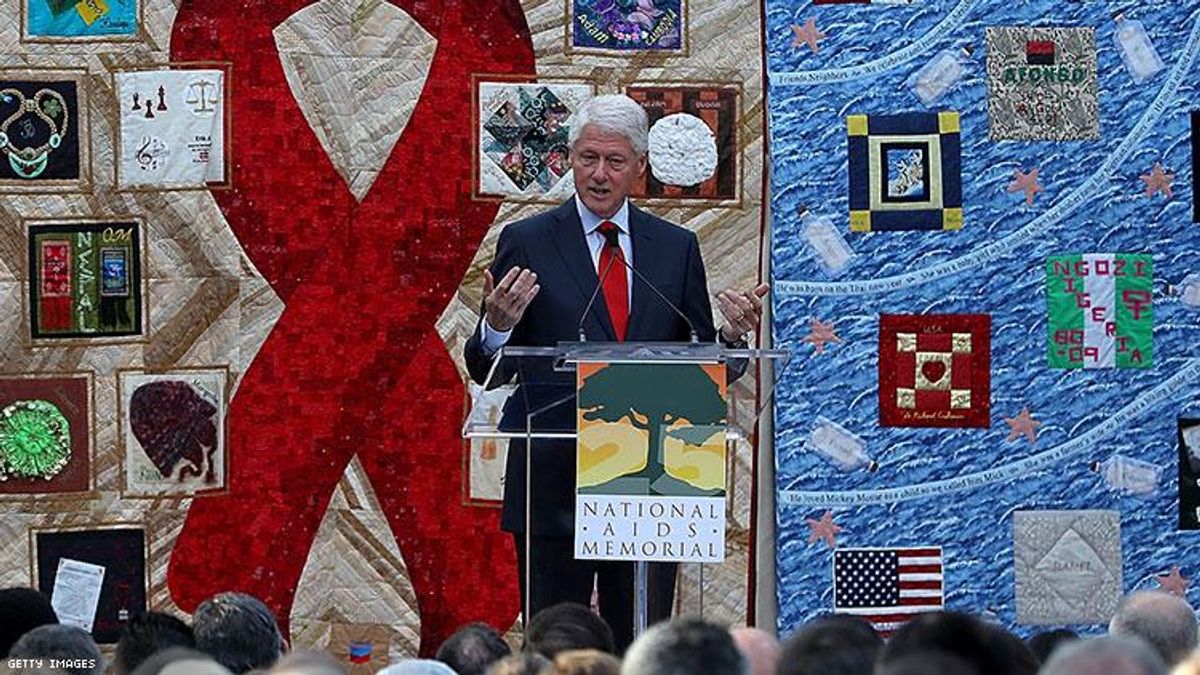I've been feeling a sense of deja vu recently, taking me back four decades. Deja vu is defined as "a feeling that one has lived through the present situation before." Mine is rooted in what I see playing out today as certain groups are being marginalized, stereotyped, and scapegoated once again.
During the darkest days of AIDS, there were calls to quarantine or isolate those living with -- or even at risk of -- being exposed to the virus.
Some who read this will remember Lyndon LaRouche Jr.'s Proposition 64, which would have taken away the rights of hundreds of thousands of Californians. Then it was gay people, and now it's other groups such as immigrants seeking a better life or transgender people who wish to serve in the military. It's based in ignorance and fear and has resulted in thousands of children separated from parents and held in cages.
I don't recognize this nation that I call "home" when compassion, empathy, and commitment to equality and justice regress.
For those dedicated to social justice, it is terribly difficult to observe. The soul of our nation and its democratic structure is being tested like no other time in our history. Political leaders are sowing the dark forces of fear and division and "other-ism" has taken hold, making it easier to devalue and view "others" as less deserving of the rights and freedoms our constitution and humanity demand. During the AIDS crisis, it was in this very dark place where so many found their voice, stood up, and fought for justice and equality, many knowing they may never live to see the change they were fighting for.
My deja vu has triggered pain, discomfort, and outrage, but I also have hope; hope in humanity and the impact we can collectively make when we take action for change and a better future. But it requires each of us to be engaged in the process and not assume that someone else will do it for us. We must inform, educate, and inspire younger generations to follow in the footsteps of those who are no longer here.
During times of instability and chaos some of the greatest changes have taken root. The AIDS movement brought profoundly positive change to those directly impacted by the epidemic, and also to our nation as a whole. Successful movements create allies and become too big to fail. And that is what must happen again. We must join together!
At our 2017 World AIDS Day National Observance, former President Bill Clinton challenged those gathered to "continue to bend the arc toward justice." Our community has bent that arc before, but our work is never complete; not until everyone is free and equal. President Clinton added, "Don't follow the headlines. Follow the trend lines. And for our nation, the trend lines are good."
The National AIDS Memorial is but one example of the power of community and the light that can emerge from darkness when we take action. For four decades, people have joined forces in honor of countless lives lost to AIDS to demand social justice and continue efforts to end HIV, once and for all. We have a responsibility to improve our communities and society at large, and in so doing, improve the lives of all individuals of which it is made.
Where on the "arc" will you exert pressure? Joining together we must protect what we have achieved and fight for a brighter day when all of our brothers and sisters will be equal and free.
John Cunningham is the executive director of the National AIDS Memorial, dedicated to providing, in perpetuity, a place of remembrance so that the lives of people who died from AIDS are not forgotten and the story is known by future generations. To learn more visit aidsmemorial.org.


















































































